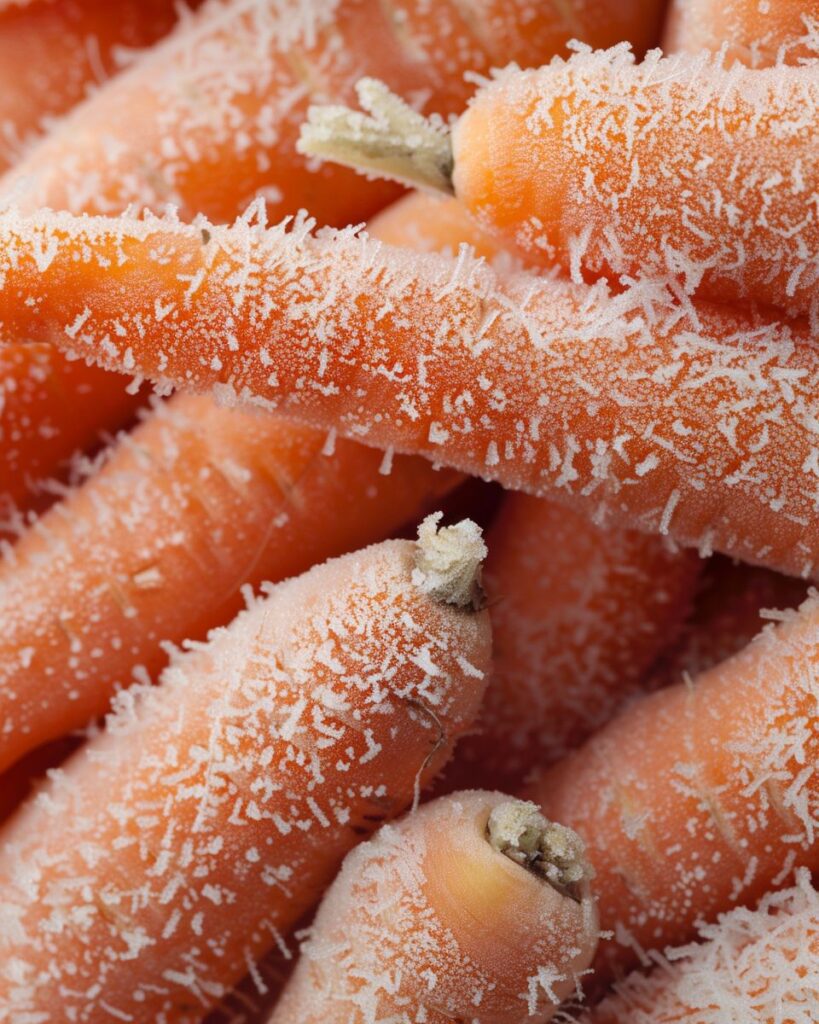
If the white fuzzy coating is the result of dehydration rather than fungal growth, it’s usually safe to consume the carrots after giving them a good rinse in cool water. Here’s what you can do if you find a white coating on your baby carrots:
1. Rinse them: Thoroughly washing the carrots under cool, running water can help to remove the white blush and any potential pathogens that might be present.
2. Soak them: For a mild case of dehydration, soaking the carrots in a bowl of ice water for a few minutes might help them regain some of their previous crispness.
3. Inspect them: Take a close look at your carrots. If they’re slimy, or if the white fuzz gives off a bad odor, it’s best to discard them as these signs could indicate spoilage.
Preventing White Coating on Baby Carrots
To prevent the white coating from developing on your baby carrots, consider these storage tips:
1. Keep them cool: Store your bag of baby carrots in the coldest part of your refrigerator.
2. Maintain humidity: Baby carrots fare best in environments with high humidity. Many refrigerators have drawers with adjustable humidity settings that are ideal for storing vegetables.
3. Use airtight containers: If the original packaging isn’t resealable, transfer the carrots to an airtight container or a resealable plastic bag.
4. Avoid washing before storage: Washing carrots before storing them can introduce excess moisture that could lead to premature spoilage.
In conclusion, a white fuzzy coating on your baby carrots is not always a cause for alarm and does not necessarily mean that the carrots are no longer edible. More often than not, it is a superficial issue that can be dealt with using simple measures. However, if there’s any doubt about the condition of the carrots, especially if they exhibit other signs of spoilage, it’s better to err on the side of caution and dispose of them. Remember, proper storage can help maintain the freshness and extend the shelf life of your baby carrots.
